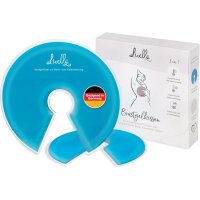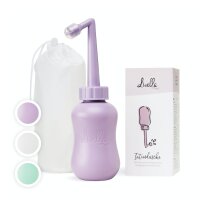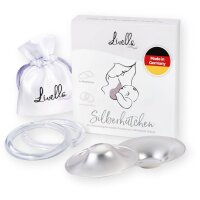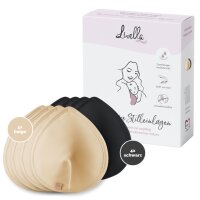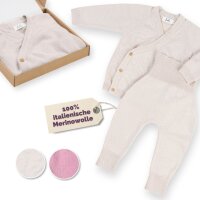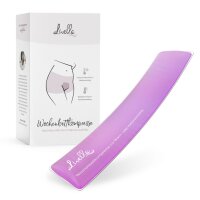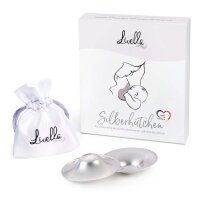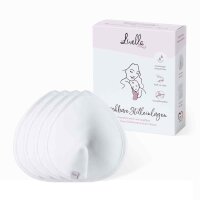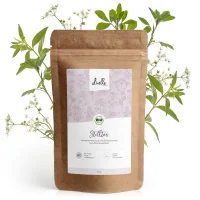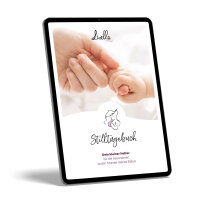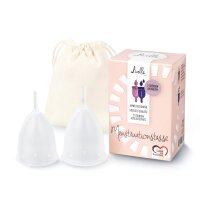Breastfeeding is not only an essential source of breast milk and nutrients but also a crucial opportunity to strengthen the emotional bond between you and your baby. The close connection formed during breastfeeding plays an important role in building trust and security for your child. In this blog, you’ll learn how breastfeeding promotes bonding, how it positively impacts your child’s development, and how you can create a more relaxed and intimate breastfeeding experience. Bonding through breastfeeding is about much more than nourishment; it’s about closeness and connection.
Table of contents
How Breastfeeding Promotes Bonding
Practical Tips for Strengthening the Bond
Long-Term Benefits of a Strong Bond
Summary
FAQ
How Breastfeeding Promotes Bonding
The bond between a mother and her child is a natural process that can be enhanced through breastfeeding. Several mechanisms contribute to strengthening this bond:
- Physical Closeness and Skin-to-Skin Contact: During breastfeeding, you enjoy the intense skin-to-skin contact with your baby, by placing them on your breast. This physical closeness promotes the release of oxytocin, commonly known as the “cuddle hormone.” Not only does this hormone strengthen the emotional bond, but it also has a calming effect on both you and your baby. Particularly in the first few months after birth, this contact helps build a strong sense of security and attachment.
- Oxytocin and Emotional Bonding: The hormone oxytocin, released during breastfeeding, not only supports milk flow but also strengthens the emotional bond between you and your child. It fosters a sense of closeness and trust, which is especially important in the early postnatal period to create a secure foundation for your baby.
- Rituals and Routines: Regular breastfeeding creates consistent rituals and routines that give your baby a sense of security and structure. These repeated patterns help deepen the bond. The combination of physical closeness, nourishment through breast milk, and regular breastfeeding rituals is essential for your child’s emotional stability.

Practical Tips for Strengthening the Bond
Beyond the natural processes that occur through breastfeeding, there are ways to further enhance the bond between you and your baby:
- Eye Contact and Communication: During breastfeeding, maintaining intentional eye contact with your baby strengthens the emotional bond. This non-verbal communication is a powerful way to connect. Smile at your baby, speak softly, and respond to their cues. This helps build trust and reinforces the deep emotional connection between you.
- Breastfeeding Positions and Comfort: Finding a comfortable breastfeeding position is important not only for successful feeding but also for both your comfort and that of your baby. A well-supported position creates a relaxed, peaceful environment, which helps to deepen the bond. Useful breastfeeding aids, such as a nursing pillow or a breastfeeding cover, can also make the experience more enjoyable. For more guidance, refer to our article on breastfeeding preparation, where you’ll find an overview of helpful tips to ensure you are well-prepared for your breastfeeding journey.
- Creating Stress-Free Breastfeeding Times: It’s essential to establish a calm, relaxed environment where you can breastfeed without distractions. Turn off any devices and focus entirely on your baby. When you are calm, your baby will also feel more at ease, which further strengthens the bond.
Long-Term Benefits of a Strong Bond
The bond created through breastfeeding not only has short-term benefits but also promotes your baby’s long-term development:
- Security and Trust: Through the close bond formed during breastfeeding, your baby learns to trust you and feel secure. This trust is crucial for building a confident sense of self and forms the foundation for healthy relationships later in life.
- Emotional and Social Development: Studies in the UK show that children who form a strong bond with their mothers during breastfeeding are more emotionally stable and find it easier to form social relationships. Research has also demonstrated that these children are more empathetic and socially competent.
- Healthy Mother-Baby Relationship: A close bond during the breastfeeding period contributes to a long-lasting, healthy mother-baby relationship. This connection not only supports the emotional development of the child but also strengthens the mother’s sense of closeness and attachment. Proper nutrition during pregnancy and breastfeeding is also vital in promoting this bond.
Summary
Breastfeeding is much more than simply providing your baby with breast milk; it’s an essential moment of bonding through physical closeness, rituals, and the release of oxytocin. By following some simple tips, you can make your breastfeeding experience more relaxed and meaningful, further deepening the bond with your child. A strong mother-baby bond has many positive effects on the emotional and social development of your child. Whether your baby is exclusively breastfed or combination-fed, emotional closeness remains key to fostering a secure attachment.
FAQ
How does breastfeeding strengthen the bond between mother and baby?
Breastfeeding strengthens the bond through physical closeness, skin-to-skin contact, and the release of the hormone oxytocin, which reinforces emotional connections.
What role does oxytocin play in breastfeeding and bonding?
Oxytocin is released during breastfeeding, providing a calming effect that supports both the emotional bond and milk flow.
Which breastfeeding positions are best for bonding?
Comfortable breastfeeding positions enhance both mother and baby’s comfort, making bonding easier. Finding a position that works for both of you is key to strengthening the bond.
How can I create stress-free breastfeeding times?
Establish a calm, quiet space for breastfeeding, free of distractions, to ensure a peaceful experience for both you and your baby.
What are the long-term benefits of a strong mother-baby bond?
A strong mother-baby bond leads to greater emotional stability, improved social development, and a healthy sense of trust in your baby.


